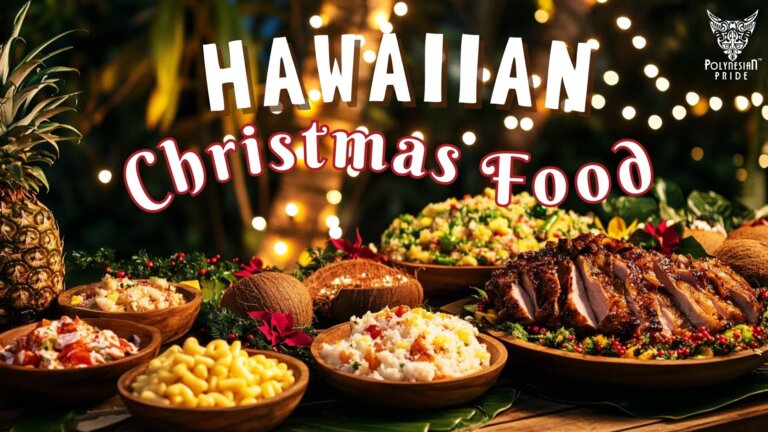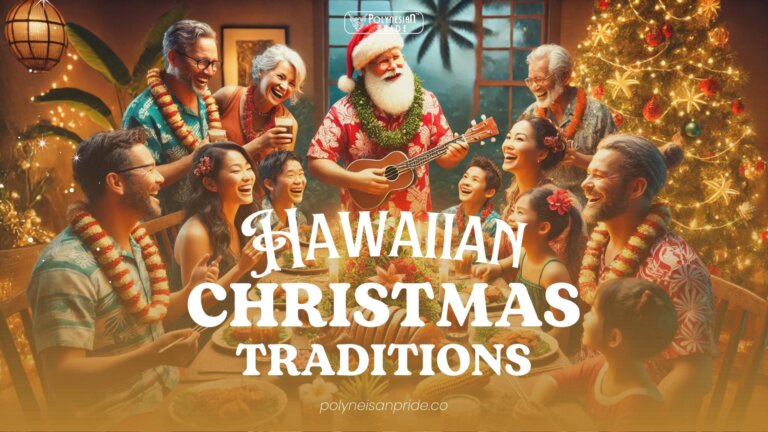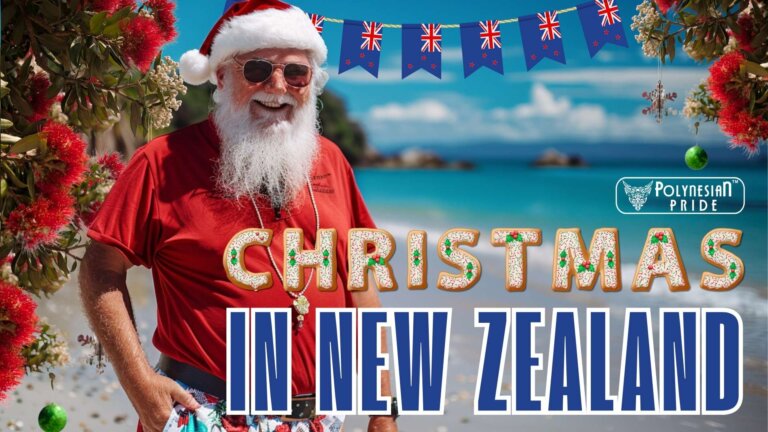Exploring the Rich and Diverse New Zealand Culture

New Zealand, often referred to as Aotearoa by the indigenous Maori people, is a land rich in culture and history. Its unique blend of Maori and European influences, coupled with modern multiculturalism, creates a fascinating tapestry that’s worth exploring. Whether you’re planning a visit or just curious about this island nation, understanding New Zealand culture is key to appreciating its depth and diversity.
Exploring the Rich and Diverse New Zealand Culture
New Zealand, known for its stunning landscapes and adventure tourism, also boasts a vibrant and diverse cultural heritage that is often overlooked. From the ancient traditions of the indigenous Maori to the influences of European settlers and the contributions of various immigrant communities, New Zealand’s culture is a fascinating blend of old and new.
Understanding this cultural richness not only enhances our appreciation of the country’s history but also deepens our connection to its people and their way of life. In this article, we will explore the key elements that define New Zealand culture, including its history, traditions, arts, cuisine, and contemporary lifestyle.

New Zealand Culture and Traditions
New Zealand has a rich history of traditions passed down through generations. These traditions encompass everything from food and art to sports and leisure activities. For example, the All Blacks, the national rugby team, performing the haka before every game is a tradition that has become synonymous with New Zealand culture.
Traditional Maori tattoos, known as ta moko, are another significant aspect of New Zealand’s culture. These intricate designs, often featuring patterns and symbols specific to the wearer, have been used to tell stories and denote status within Maori society for centuries. Today, ta moko is still practiced by Maori people and has gained popularity among non-Maori individuals as well.

New Zealand culture is a melting pot of various influences, making it one of the most diverse and dynamic cultures in the world. The country has a strong connection to its indigenous Maori culture, as well as a thriving contemporary art scene and an embracing attitude towards multiculturalism.
New Zealand and Maori Culture
The Maori people are the indigenous Polynesian people of New Zealand, and they have a rich and storied history that dates back over 1000 years. They arrived in New Zealand by canoe from their ancestral homeland of Hawaiki and have since established a strong presence in the country.
Today, they make up around 15% of the population and have a significant influence on New Zealand’s culture and way of life.

Language and Traditions
The Maori language, or Te Reo, is one of New Zealand’s official languages and a vital part of Maori identity. Efforts to revive Te Reo include teaching it in schools and using it in public life, ensuring it remains a living language. Traditional practices such as the Haka, a powerful war dance, and Ta Moko, the art of tattooing, are prominent. The Haka embodies strength and unity, while Ta Moko tells the wearer’s ancestral and personal stories through intricate designs.
Art and Symbolism
Maori art, including wood carvings, weaving, and painting, is rich in symbolism. The koru, representing new life and growth, and tiki figures, symbolizing ancestral spirits, are notable Maori symbols. Weaving is a respected craft, producing items like cloaks and baskets that hold cultural significance and artistic value. Many of these woven cloaks are part of traditional attire, reflecting the beauty and meaning behind Maori traditional clothing.

Māori Social Structure
Maori society is organized into iwi (tribes), hapu (sub-tribes), and whanau (extended families), emphasizing community and collective well-being. Leadership roles, particularly those of elders (kaumatua), are highly respected, as they guide their communities and preserve cultural traditions. The communal decision-making process reflects the importance of harmony and support within the community.
Understanding the language, traditions, art, and social structure of the Maori provides a deeper appreciation of their rich cultural heritage, which continues to thrive and enrich New Zealand’s national identity.
Maori Cuisine
In addition to Maori cuisine, New Zealand’s food culture is heavily influenced by its British heritage. The country has a strong tradition of meat and dairy farming, which is reflected in its cuisine.
Some of the most iconic New Zealand dishes include fish and chips, steak and cheese pies, and pavlova (a dessert consisting of meringue, whipped cream, and fruit).

However, in recent years, there has been a growing interest in incorporating indigenous ingredients and flavors into modern New Zealand cuisine. This movement, known as “modern Maori cuisine“, combines traditional Maori cooking techniques and ingredients with contemporary cooking styles and presentations. This fusion of cultures has resulted in a truly unique and flavorful dining experience.
Language in New Zealand
English as the Primary Language
English is the dominant language, used in government, media, and education. However, New Zealand English has its own distinct accent and vocabulary.
The Revival of the Maori Language
Efforts to revitalize Te Reo Māori – the indigenous language of New Zealand, also known as the Māori language have been successful, with increasing numbers of speakers and widespread use in public signage, media, and education.
Influence of Pacific Languages
Pacific communities contribute to the linguistic diversity, with languages like Samoan, Tongan, and others spoken within these communities.
New Zealand Culture Dance
Dance plays an essential role in New Zealand’s culture, and there are various styles that have evolved over time. As mentioned earlier, the haka and poi dances are significant parts of Maori culture, but there are also other traditional dances performed by different ethnic groups in New Zealand, such as the Cook Islands drum dance and the Samoan Siva Tau.

In addition to traditional dances, New Zealand also has a thriving contemporary dance scene, with many dance studios and companies showcasing a variety of styles, including ballet, jazz, hip hop, and contemporary. The annual Tempo Dance Festival in Auckland is an excellent opportunity to witness the diversity and talent of the country’s dance community.
New Zealand Dating Culture
The dating culture in New Zealand is a mix of traditional values and modern attitudes. While arranged marriages are not common, family and community approval is still highly valued when it comes to relationships. However, unlike some other cultures, there is no pressure to get married at a young age, and many New Zealanders choose to live together and start families before tying the knot.

New Zealand also has a relaxed attitude towards dating and relationships, with a focus on mutual respect and communication. The country’s diverse cultural influences mean that there is no one set way to date, and individuals are free to explore different types of relationships, depending on their personal preferences and beliefs.
New Zealand Pop Culture
New Zealand’s pop culture has gained global recognition in recent years, thanks to the success of local artists such as Lorde, Flight of the Conchords, and Taika Waititi. These creative minds have put New Zealand on the map and brought attention to the country’s unique sense of humor, creativity, and quirkiness.
The film industry in New Zealand has also seen significant growth, with blockbusters like the Lord of the Rings and Hobbit trilogies being filmed in the country. This has not only boosted tourism but also provided opportunities for local talent and creative industries to flourish.
New Zealand Culture and Lifestyle
The lifestyle in New Zealand is heavily influenced by the country’s natural surroundings, with many people participating in outdoor activities such as hiking, camping, and water sports. The country also has a strong cafe culture, with many people enjoying a cup of coffee or brunch with friends and family.

New Zealanders are known for their friendly and laid-back nature, and this is reflected in their lifestyle. People tend to have a work-hard, play-hard mentality, balancing their careers with leisure time spent with loved ones. This relaxed approach to life is one of the reasons why many visitors feel at home in New Zealand and choose to stay longer than planned.
Captivating Destinations
New Zealand is a country with stunning landscapes and captivating destinations. From the rolling hills of the North Island to the fjords of the South Island, there are many natural wonders to explore. Rotorua is a geothermal wonderland with bubbling mud pools, geysers, and hot springs. For adventure enthusiasts, Queenstown offers activities such as bungee jumping, skydiving, and jet boating.

Warm Hospitality and Customs
New Zealanders, known as Kiwis, are famous for their warm hospitality and friendly nature. The concept of manaakitanga, which embodies hospitality and respect, is deeply ingrained in the culture. Locals often go out of their way to make visitors feel at home.
Vibrant Festivals and Celebrations
The country’s calendar has vibrant festivals and celebrations showcasing its diverse cultural heritage. The Māori, the indigenous people of New Zealand, play a significant role in shaping the cultural landscape. The annual Matariki Festival celebrates the Māori New Year with cultural events, traditional performances, storytelling, and art exhibitions. The Pasifika Festival brings together Pacific Island communities, offering music, dance, and cuisine from various Pacific cultures.
Active Lifestyle and Recreation
New Zealand’s pristine environment and temperate climate encourage an active lifestyle. There are numerous recreational activities available, including hiking, mountain biking, surfing, and more. The Great Walks, a series of stunning multiday hiking trails, provide an immersive experience through some of New Zealand’s most breathtaking landscapes. The Bay of Islands offers water lovers crystal-clear waters for sailing, fishing, and swimming with dolphins.

Tradition in New Zealand
As a country built on cultural diversity and respect for traditions, New Zealand continues to celebrate and embrace its customs. From Maori cultural traditions to modern-day practices, these traditions play a significant role in shaping the country’s identity and creating a sense of belonging for its people.
One popular tradition in New Zealand is Christmas, where families gather together for a festive meal and exchange gifts. However, due to being in the Southern Hemisphere, Christmas falls during the summer months, leading to unique traditions such as “Christmas barbecues” and trips to the beach.

The tradition of giving back and caring for others is deeply embedded in New Zealand culture. The concept of “manaakitanga”, which means hospitality and kindness, is an essential part of Maori culture and has been adopted by all New Zealanders. This value is reflected in everyday interactions, from helping a neighbor to welcoming visitors into their homes.
Another tradition that is ingrained in New Zealand’s culture is the practice of caring for the land and the environment. The country has a long history of sustainability and conservation, and many initiatives and laws have been implemented to protect its natural resources. This deep respect for the environment is evident in the way New Zealanders interact with nature and is something that visitors to the country often admire.
Conclusion
New Zealand’s culture is a fusion of indigenous Maori traditions and contemporary influences, making it a unique and vibrant destination for travelers. From its rich history and customs to its diverse cuisine and lively arts scene, there is so much to explore and discover in this beautiful country. Whether you are interested in learning about traditional Maori culture or experiencing modern New Zealand lifestyle, there is something for everyone in this thriving and welcoming nation. So, if you are planning your next trip, make sure to add New Zealand to your list and immerse yourself in all that this incredible country has to offer.
FAQs
What are the key components of Maori culture in New Zealand?
Maori culture is characterized by its unique language (Te Reo Maori), traditional arts (such as carving, weaving, and tattooing), spiritual beliefs, and social customs. The marae, or communal meeting grounds, play a central role in Maori society.
How has European colonization influenced New Zealand culture?
European colonization introduced new architectural styles, educational systems, and holidays. The Treaty of Waitangi, signed in 1840, is a significant historical event that continues to influence the relationship between Maori and European-descended New Zealanders.
What is the significance of the haka in Maori culture?
The haka is a traditional Maori war dance that embodies strength, unity, and ancestral pride. It is performed at important events and ceremonies, both within Maori communities and in broader New Zealand society, including international sports events.
How does New Zealand celebrate its multicultural heritage?
New Zealand celebrates its multicultural heritage through various festivals, events, and public holidays that reflect the diverse cultures within the country. These include Maori events like Matariki (Maori New Year) and festivals celebrating the cultures of Pacific Islanders, Asians, and other immigrant communities.
What are some traditional Maori foods, and how are they prepared?
Traditional Maori foods include dishes like hangi, which is a method of cooking food in an earth oven. Indigenous ingredients such as kumara (sweet potato), seafood, and native herbs are commonly used. The preparation and sharing of food are important aspects of Maori hospitality and culture.

I am Leilani Miller – I research focusing on Vanuatu – volcanic landscapes, blue holes, coral reefs & rainforests. I have over five years of experience researching and sharing insights on tourism and environmental activism. Explore and experience without limits through my latest article.
Contact information:
Email: [email protected]
Tel: +1 (808) 555-1528






